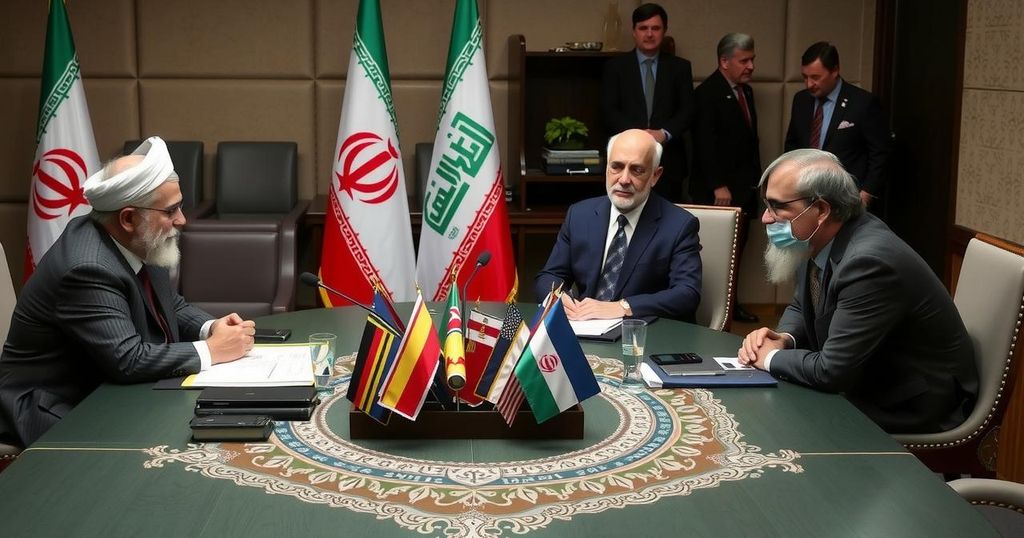The swift collapse of Bashar al-Assad’s regime in Syria has led to a split within Iranian leadership, revealing contrasting opinions on foreign policy. While some officials express regret over inadequate military support for Assad, others believe this change could lead to a positive reassessment of Iran’s ideological commitments. There is a focus on maintaining influence through new alliances, amid fears of increased Western pressure on Iran’s nuclear ambitions.
The unexpected rapid advance of rebel forces in Syria, resulting in the collapse of Bashar al-Assad’s regime, has caused a significant divide within the Iranian establishment. Many officials in Tehran were taken by surprise by the Syrian army’s swift retreat and the inability to control key territories due to the absence of critical Hezbollah fighters. With Israeli air raids further complicating the situation, Iranian authorities referred to the rebels as ‘armed groups’ instead of ‘terrorists’ after their southern advance toward Damascus.
Sources within the Iranian government disclosed that Tehran sought assurances from rebel group Hay’at Tahrir al-Sham regarding the protection of sacred Shia sites in Syria, reflecting the deep concern of Iran’s religious leadership over potential losses. The reaction among the Iranian populace has been polarized; radical supporters of the regime express dissatisfaction with the perceived lack of military engagement, deeming Assad a crucial ally against extremism.
Conversely, some reformists view the setback as an opportunity for Iran to reassess its foreign policy strategies, indicating that previous commitments to regional ideological goals could ultimately hinder national interests. A former diplomat noted that Iran would adjust its approach, opting for continued engagement with various factions in Syria while monitoring the actions of potential new leaders.
Since the fall of the regime, governmental statements have concentrated on maintaining Iran’s influence in the region and fostering alliances through proxy groups. Supreme Leader Ayatollah Ali Khamenei maintains that resistance against external forces remains strong despite these challenges. As tensions in Syria escalate, Iranian leaders ponder over whether this landscape could translate into broader implications for their nuclear ambitions.
The Iranian establishment’s response to the events in Syria is chiefly influenced by the strategic importance of Bashar al-Assad’s regime in supporting Iran’s broader geopolitical ambitions in the region. Given the historical alliance between Syria and Iran against common adversaries, particularly Israel and extremist groups, the swift fall of Assad has unsettled Tehran. This involvation has incited a complex series of reactions among Iranian officials and the public, bringing to light underlying tensions regarding foreign policy priorities. While some factions advocate for the continuation of their historical support for Syrian proxies, others see a need for strategic adaptation in light of changing circumstances.
In summary, the fall of Assad’s regime in Syria has created significant tensions within Iranian decision-making circles, reflecting deep ideological divides regarding foreign policy. The responses include a desire to adapt military strategies while maintaining regional influence through alliances and proxy organizations. As internal pressures mount, the Iranian leadership is compelled to reassess its longstanding approach towards an increasingly volatile Middle East, which may have lasting ramifications for its nuclear policy and regional engagements.
Original Source: www.middleeasteye.net






